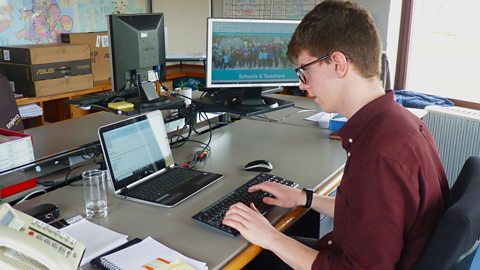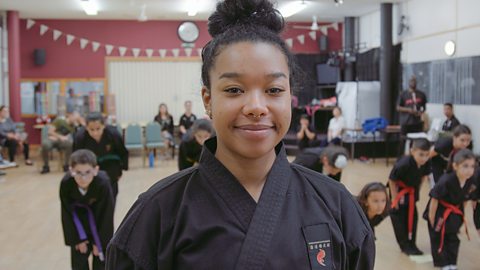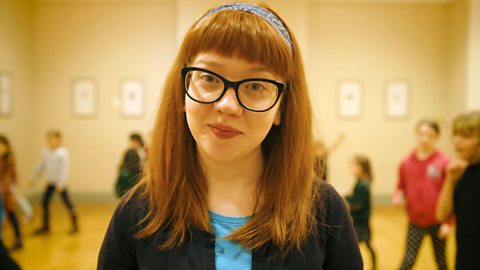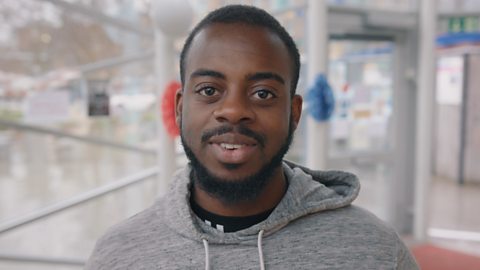Meet Callum, 19, from Aberdeenshire. He works on the Isle of Coll as an education support officer for the educational charity Project Trust. Part of our Bitesize world of work series.

I didn’t know I wanted to get into teaching until my year away with Project Trust!"
What is your job?
I work for Project Trust, an educational charity that send 17-19-year-olds on long-term voluntary placements overseas either teaching, doing social care work or outdoor education projects. I run the Global Citizenship Schools Programme, liaising with schools and returned volunteers to organise Global Citizenship sessions. I enable returned volunteers to give back to their local community, so they can share their experiences of another culture or language in local primary schools and lower secondary schools. I also support current volunteers in completing their Diploma in International Volunteering.

What skills do you use in your job?
I use IT skills such as creating documents and spreadsheets, writing emails, using a database and using a server. I also use design and research skills when I make presentations and resources for lessons. In my job, I also have to have strong leadership and teaching skills, as well as be a strong communicator.
Our charity has five core skills that volunteers develop: awareness, resilience, communication/collaboration, confidence, and leadership.
What subjects did you study at school?
At National 5, I did Drama, Art, Graphics, Design and Manufacture, Physics, English and Mathematics. For my Highers I did the same subjects, dropping Design and Manufacture and Physics. I enjoyed my subject choice but picking subjects that were all similar did close off my options and, in reflection, I wish I had chosen a broader range of subjects.
How do you draw on a particular subject that you studied at school?
I did Drama at school which developed my confidence and communication skills and has really helped me with teaching and presenting. Also, basic IT that you learn in lower secondary is really important, along with English and graphics for creating documentation and resources. Additionally, a lot of work I did outside of school in terms of volunteering helped me develop the skills needed for my job.
How did you get into your job?
I didn’t know I wanted to go into education and the social sector until my year away teaching with Project Trust!
Originally, I wanted to do Architecture at university, however after my year away I realised it wasn’t right for me. I felt like I’d narrowed my choices in school and found it difficult to then change my career path. I focused on doing more voluntary work to help me gain the skills and experiences needed for my current role. Through my role at Project Trust I am getting the opportunity to work in education and the social sector and gain the additional training and experience needed to further my career.


Top tips
When you’re doing your GCSEs, keep your options as varied as possible, because you may change your mind as you grow up
Also, don’t push yourself into a degree if you’re not 100% about it. Maybe take a structured year out to see the different options available before committing to one thing.

A similar role to what Callum does is a youth worker. Youth workers guide and support young people aged 11 to 25 and organise activities to help them develop.
What to expect if you want to be a youth worker
- Youth worker average salary: ÂŁ18,000 to ÂŁ33,000 per year
- Youth worker typical working hours: 37 to 39 hours per week
What qualifications do you need to be a youth worker?
You could get into this role via a university course, a college course (such as a Level 2 or Level 3 Diploma, or a T-level - England only), an apprenticeship, volunteering, working towards the role or applying directly if you have relevant experience.
Sources: LMI for All, National Careers Service,
This information is a guide and is constantly changing. Please check the website for the latest information and all the qualifications needed and the for more on T-levels.
For careers advice in all parts of the UK visit: , , and .


Find out more
Find work experience placements with Workfinder.
Tips and advice
Help with interviews, writing a CV and all things work experience related.


Shola: trainee karate instructor. video
Shola uses her knowledge of the body in her role as a trainee karate instructor.

Megan: drama facilitator. video
Megan leads drama classes for children in Northern Ireland.

Jaidon: rap workshop leader. video
Jaidon's a rap workshop teacher and youth ambassador.
